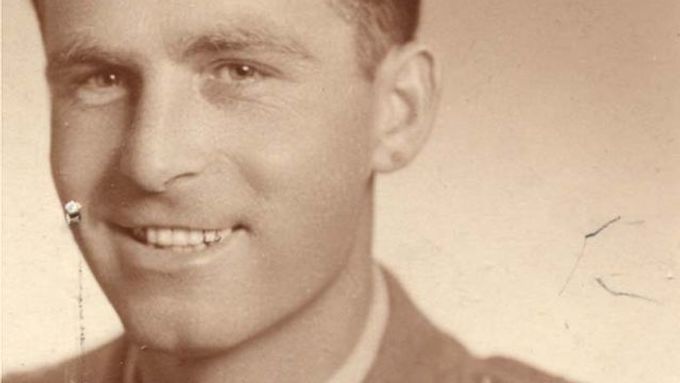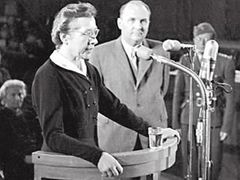Prague - Czech Institute for the Study of Totalitarian Regimes decided to publish information about the fate of those executed by Czechoslovakia´s Communist regime in late 1940s and early 1950s. Their stories will be available online and a monograph will follow next year.
"In preparation of the show trials as well as during the court proceedings, the Communist regime used many instruments whose brutality and arbitrariness were - with the exception of the Nazi protectorate era - unprecedented in the history of the country," Petr Mallota who is the project´s mastermind.
Read more: Former prosecutor gets six years for judicial murder
One of the numerous victims was Karel Sabela who fought during the Second World War on the Western Front, participating in the Allies´ liberation of occupied France and who earned a number of medals, for example "For gallantry in the face of the enemy" award, which was granted to him by the Czechoslovak exile government in London.
This medal is awarded to Czechoslovak citizens who demonstrated personal bravery and heroism in combat against the fascist enemy.
Anti-state conspiracy charges
Following the February 1948 Communist coup, he was sentenced to death and executed after "the first workers' president" Klement Gottwald refused to pardon him.
Curiously, Sabela´s membership in the Communist Party of Czechoslovakia (KSČ) was of no help to him during the trial.
"As a high-ranking officer with experience of living in the West, the communists charged him with participating in a fictitious or trumped-up anti-state military conspiracy (so called Norbert Action)," explains the Institute on their web site.
Read more: Dubček Jr.: People cannot be blamed for their leaders
Hundreds of people were executed in the years 1948-89, however there is no official consensus over how many of them were politically motivated executions. Some say 248, others 262, or 227, explains the Institute.
Vladivoj Tomek, executed in Prague on November 17, 1960 is usually considered the last person executed for political reasons.
Read more: Anti-communist fighter: We are not murderers
Post-war revolutionary justice
Nonetheless, the most massive wave of political executions took place not during the first years after the Communist coup of 1948, but shortly after the Second World War.
Both waves of judicial murders had one thing in common, though - killing innocent people.
Historian Jaroslav Vorel claims that more than 730 capital punishments were issued by special people's courts that were in operation in those days. It is very likely that the uncontrolled revolutionary justice was used to solve interpersonal disputes, he adds.
Read more: Post-war expulsion still an issue for Bavarian leader

